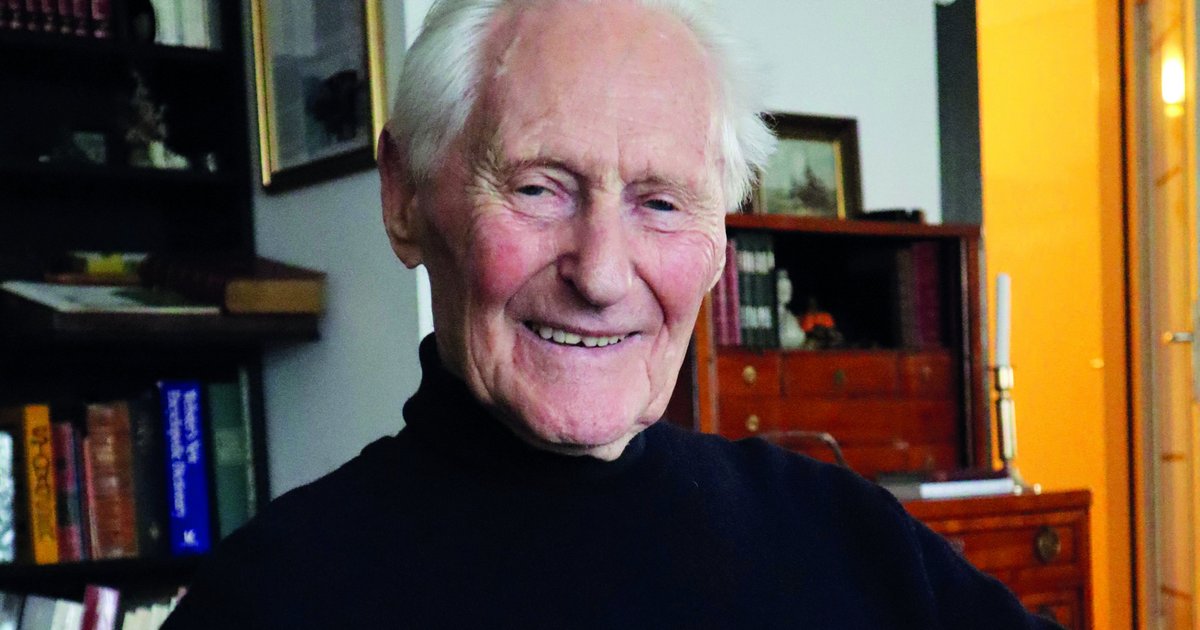(Vienna, May 8, 2024) With Hans Tuppy, Austria is losing an internationally recognized biochemist, committed teacher and visionary science politician. Hans Tuppy died in Vienna at the age of 99. In addition to numerous other functions, Tuppy was dean of the medical faculty at the University of Vienna, now MedUni Vienna, from 1970 to 1972, with which he was closely associated until the end of his life.
Hans Tuppy was born on July 22, 1924 in Vienna. Both his father and his brother fell victim to the war and the Nazi regime. After graduating from high school in 1942, a year of war, Hans Tuppy studied chemistry at the University of Vienna under Ernst Späth and Friedrich Wessely, among others. After graduating in 1948, his professional path took him to Cambridge, on the recommendation of the later Nobel Prize winner Max Perutz, where he worked in Fred Sanger’s world-famous laboratory on the first sequencing of a protein, insulin, for which Fred Sanger won his first Nobel Prize should get.
Hans Tuppy’s next career step took him to the Carlsberg Laboratory in Copenhagen, from where he returned to the University of Vienna in 1951. There he first worked as an assistant at the II Chemical Institute of the University of Vienna and finally, from 1963, as a full professor at the newly created Institute of Biochemistry at the Medical Faculty of the University of Vienna. Hans Tuppy was dean of the medical faculty at the University of Vienna (now the Medical University of Vienna) from 1970 to 1972 and rector of the University of Vienna and chairman of the Austrian Rectors’ Conference from 1983 to 1985. His research activities were always broad. In addition to his biochemical work on various interesting enzymes and peptides, he also conducted research in the areas of hormones, nucleic acids and viruses. Several of his scientific papers dealt with new findings in blood group chemistry.
Hans Tuppy was not only an internationally recognized biochemist, but also actively involved in science policy, where he successfully advocated for the further development of Austria as a research location. He was involved in the formulation of the research funding law, which led to the creation of the Austrian Science Fund (FWF). His long-term presidency of the FWF set international standards in assessment and project funding and thus laid the foundation for the success of Austrian science. As a visionary with international experience, Hans Tuppy also played a key role in founding the Vienna BioCenter.
From 1985 – 1987 he was President of the Austrian Academy of Sciences. From 1987 to 1989 he was Federal Minister for Science and Research. Tuppy then returned to science and remained active in teaching even after his retirement. Until his old age, Hans Tuppy was a valued member of the Max Perutz Labs at the University of Vienna and the Medical University of Vienna.
Hans Tuppy received numerous honors for his work: In addition to various honorary doctorates and the Austrian Decoration of Honor for Science and Art as well as the Wilhelm Exner Medal, he was awarded the Ludwig Wittgenstein Prize of the Austrian Research Foundation and was the recipient of the Great Golden Decoration of Honor with the star for services to the Republic of Austria. In 2019 he received the badge of honor from the Medical University of Vienna.
